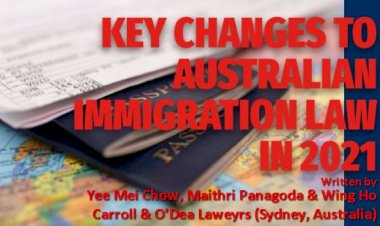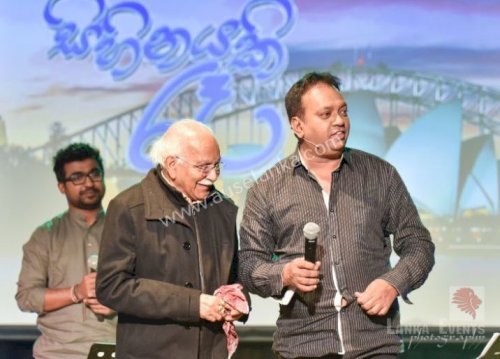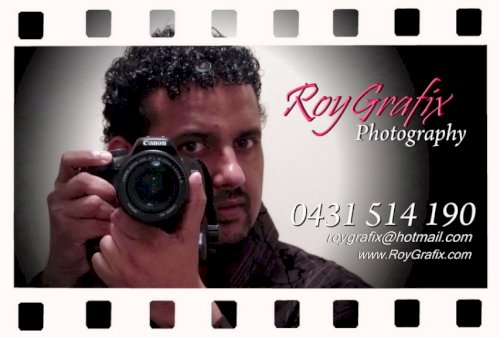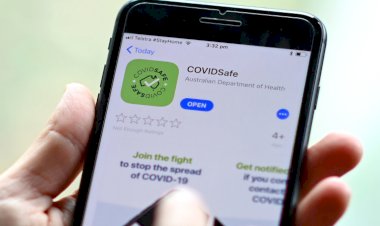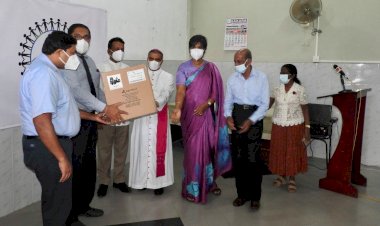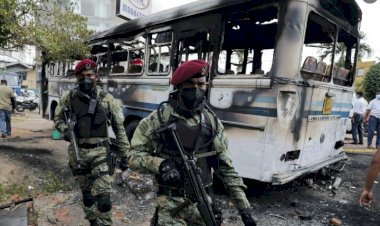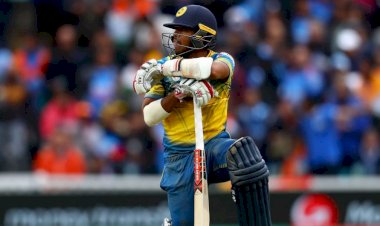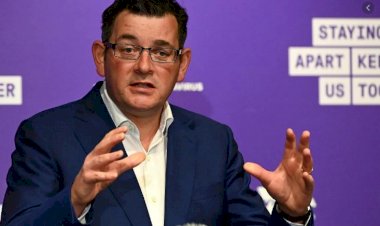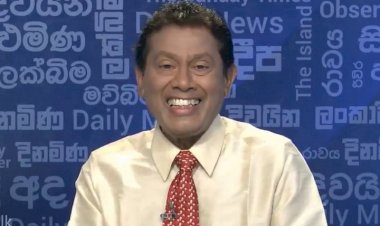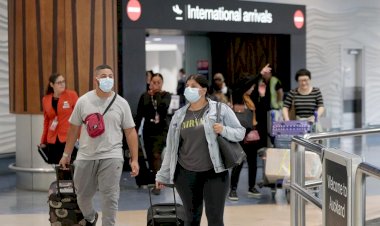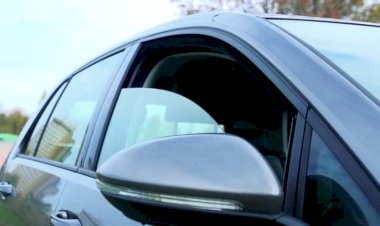As Lockdown Fetish Fades, Australia Argues Over Living with Covid
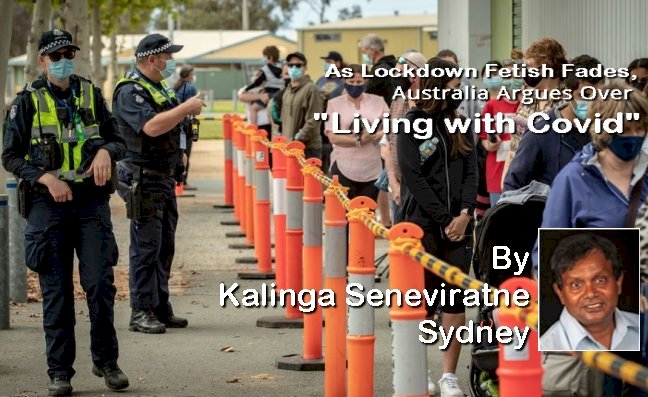
By Kalinga Seneviratne - Sydney
Last year, Australia was among the first countries to successfully battle the Covid-19 pandemic with lockdowns and efficient contact tracing, but, with the rapid transmission of the Delta variant, especially in Sydney and Melbourne, the politicians' fetish for lockdowns is now being questioned with Prime Minister Scott Morrison and some state leaders arguing for "opening up" after a certain threshold is reached in vaccinating the population.
Morrison told a press conference in Canberra on August 23 that state premiers had already signed up to his plan to lift lockdowns gradually when the population reach a double vaccination target of 70 to 80 per cent. When the Delta variant invaded Australia in June, Morrison was widely criticized here for not implementing a proper vaccination plan, as Australia was then one of the least vaccinated countries in the world.
It was mainly due to the fact that most parts of Australia had zero Covid-19 infections since about November last year. This "zero-Covid" policy has created a lockdown fetish among Australia's state political leaders who were quick to order lockdowns or close borders to travellers from other states when a Covid-19 infection was detected—mainly leaks from hotel quarantine facilities for arriving overseas travellers.
Australia has taken a draconian attitude with regards to national borders. Since March 2020 no Australian citizen or permanent resident is allowed to leave Australia unless they have special permission from the Home Affairs Ministry. Australian citizens and permanent residents have also faced a number of problems in returning home, and when they do, they have to fork out over $2,000 for two weeks quarantine at a hotel. At the moment, there are over 30,000 Australians stranded overseas. Australian borders have also been completely closed to overseas travellers including students who have got visas to study in Australia.
Australian tourism and higher education sectors—among the top five foreign exchange earners for the country—have been devastated by these bans, and a domestic tourism boom late last year and early this year has been stopped on its tracks by the lockdowns that came with the arrival of the Delta variant in June.
Universities have made numerous appeals to the government to allow foreign students in, but to no avail. Many top Australian universities are facing a funding crisis due to lack of overseas students revenue and thousands of academic staff have been laid down—some estimates put it at 30,000—mainly adjunct and casual staff.
Many other sectors of the economy such as food and beverages, farming sector, entertainment and event industry have all been badly hit by the latest lockdowns and people are now showing clear signs of lockdown fatigue. The police as seen in Melbourne and Sydney last month has ruthlessly suppressed peoples' protests against these lockdown policies.
Thus, it is in this climate that Morrison is keen to open up the country and the economy again. He has also to go for a federal election before May 2022. In addition, the government has made no secret of the fact that they had to borrow heavily last year to fund payouts known as "job keeper" allowances to those workers in businesses effected by lockdowns.
Since the Covid-19 pandemic hit Australia last year, the government has set up what is called a 'national cabinet' where the Prime Minister and the State Premier meet regularly virtually to plan national policy towards tackling the pandemic and its associated effects. According to Morrison, the 'national cabinet' had agreed on measured to get out of the lockdowns and internal state border closures.
"The national plan we have developed and agreed is our pathway to living with this virus. That is our goal, to live with this virus, not to live in fear of it," Morrison said during the press conference on August 23.
"Our goal must be to help people overcome those fears and not give in to them. Because this cannot go on forever, this is not a sustainable way to live in this country, without those freedoms that we all cherish," he added.
Morrison did acknowledge that Covid case numbers could go up when lockdowns are relaxed. But, his confidence of living with the virus is based on modeling done by Melbourne's Peter Doherty Institute for Infection and Immunity, a joint venture between the University of Melbourne and the Royal Melbourne Hospital.
In a report submitted to 'national cabinet' on July 30 the institute has given a modelling scenario for managing Covid transmission in the community at 70 per cent and 80 per cent vaccination coverage of the population over 16 years. This report has now become a centre of debate among political leaders here with Queensland Premier Ms Annastacia Palaszczuk challenging the modelling, while NSW Premier Ms Gladys Berejikian using it to argue for opening up her state inspite of rising Covid number that reached the highest ever case numbers in a day recorded in the state since the Covid-19 outbreak last year of 1288 infections and seven deaths on September 1.
During her daily press conference the same day flanked by the state’s chief health officer, Berejikian argued that people need to learn to live with the Covid virus transmitting around the communities and echoed Morrison's argument that they should not be scared of it.
"At the moment, there are 8 million citizens who don't have a choice in how they spend their free time, who don't have a choice about what they can do, when they can leave their homes. That is no way to live," she said, pointing out annual flu deaths in her state averaged 600-800 before the pandemic,
"Nobody likes to talk about this because it's confronting. But we have to get back to living with life as normal as possible, knowing that Covid is among us," Berejikian said."So we have to get very real about what we're facing." There have been 119 Covid-19 related deaths in NSW since the start of the Delta outbreak on June 16.
Victorian Premier Daniel Andrews, who had a fetish to lockdown Melbourne whenever a handful of Covid cases were detected there, that has let to some six such lockdowns since last year, acknowledged on August 31 that his state will not see returning to zero-Covid situation for some time, and Victorians need to "live with the virus". This is what Berejikian admitted several weeks ago.
Thus, while the Premiers in the two most populous states acknowledge this fact, the Premiers in the other four states are still adamant that their borders would not be opened for free travel between states until numbers are down to near zero everywhere, which has created a debate between these premiers and Morrison on what was agreed at 'national cabinet'.
Australia's national broadcaster ABC has revealed in a report that the Australian public hospital system is under strain even without having to admit Covid patients. In Western Australia the health system is "at breaking point and yet there's not a single case of Covid-19 right now(in the state)", said the ABC, pointing out that hundreds of non-urgent elective surgeries have been cancelled this month, while ambulance "ramping"—the hours patients in ambulances wait to be admitted into a hospital—has reached a record cumulative high of 6,000 in August.
West Australian Premier Mark McGowan, a vociferous advocate of zero-Covid before opening up the economy, has conceded the system is under pressure but he has blamed the federal government for under funding of the public health system, and claimed that his state have to keep "hundreds of aged and disability care patients occupying hospital beds” as a result. A similar story is playing out in South Australia, another Covid-free state, where its state premier is also resisting opening up state borders.
In NSW, the Delta outbreak is putting a huge strain on the public hospital system with some 950 Covid patients needing hospital admission with 150 in intensive care units (ICU) as of this week. In Melbourne, some hospitals were forced to redirect ambulances in August. In March last year, when Covid first hit Australia the whole country went into a lockdown.
ABC says that this was done to buy time "for the state and federal governments to bolster their supplies of surgical masks, gloves and gowns, and source more ventilators in anticipation of a surge in Covid patients requiring intensive care". The federal health minister Greg Hunt said recently that Australia now has 7500 "ventilated" ICU beds and 4000 ventilators sitting unused in the national stockpile.
The Australian Medical Association (AMA) is pretty confident the country is now well equipped to deal with these current and future outbreaks, and to care for Covid patients, but, it has raised concerns about a shortage of trained nurses especially to work in the ICUs. With or without Covid, AMA wants the nation's leaders to collectively acknowledge that with an ageing population and increasing demand, Australia needs more hospitals, more beds, more staff and more medical equipment.
Melbourne epidemiologist Professor Mary-Louise McLaws, a Covid advisor to the World Health Organisation (WHO) told the 'New Daily' that though lockdowns worked "very well" for earlier strains, with the advent of the Delta strain Australians "need to learn to work with the virus and reduce our risks".
This should include bolstering the hospital system and boosting contact tracing. In getting to the next stage is "the realization we won't get to zero" and she argues that it should not include just focusing only on vaccines, but "need to be able to handle multiple big ideas".
[First Published IDN-InDepthNews – 04 September 2021]




 mode1
mode1 







